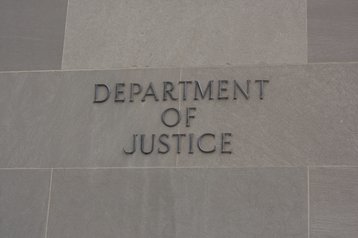In a move that could send shockwaves across the industry, Microsoft has sued the US Department of Justice, accusing it of acting illegally when it prevents the company from disclosing that customer data has been accessed by the federal government agencies.
On Thursday, Microsoft filed a lawsuit with the US District Court for the Western District of Washington claiming that the DoJ was misusing the Electronic Communications Privacy Act (ECPA) to keep requests for customer data secret, often without any need.
The company said it was standing up for customers’ constitutional and fundamental rights.
“Not surprisingly, business customers regularly convey to us their strong desire to know when the government is obtaining their data. And not surprisingly, they want the opportunity for their own lawyers to review the situation and help decide whether to turn over information or contest the issue in court,” Brad Smith, president and Chief Legal Officer at Microsoft, wrote in a blog post.
Fighting for customers
Smith said it was becoming routine for the US government to issue orders that prevent businesses like email and cloud service providers from notifying their customers that their data has been accessed. He admitted that in some cases, the need to maintain security was justified – but added that most customers have the right to know when they were probed by the state.
According to Microsoft, over the past 18 months, the US government has required that the company maintain secrecy regarding 2,576 demands for information. A massive 68 percent of the total contained no fixed end date at all - in such cases, the company is expected to maintain silence forever.
According to Smith, in making such requests, the Department of Justice is violating two constitutional amendments – the First Amendment, which guarantees Microsoft’s right to talk to customers about how government action is affecting their data, and the Fourth Amendment, which gives people and businesses the right to know if the government searches or seizes their property.
“Cloud computing has spurred a profound change in the storage of private information. Today, individuals increasingly keep their emails and documents on remote servers in data centers – in short, in the cloud. But the transition to the cloud does not alter people’s expectations of privacy and should not alter the fundamental constitutional requirement that the government must – with few exceptions – give notice when it searches and seizes private information or communications,” Smith wrote.
Microsoft suggested that the DoJ should change its policy to be based on principles of transparency, neutrality and necessity. Alternatively, the US Congress could make changes to the Electronic Communications Privacy Act – originally enacted in 1986 - in order to balance the needs of individuals and businesses against the needs of the government.
This is the fourth public case Microsoft has filed against the US government related to customer right to privacy and transparency.

